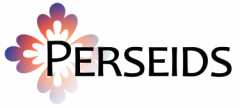Bridget Almas
Bridget has worked in software development since 1994, in roles which have covered the full spectrum of the software development life cycle, focusing since 2007 in the fields of language study and digital humanities. She has designed and developed multiple applications and services deployed in various SOA/ROA environments, and her skills include the programming languages Java, Javascript, XQuery, XSLT, Ruby, Python and Perl, as well as broad experience with databases and XML technologies. She has served as the technical lead on various projects and has extensive experience in project management.
In her current role at Tufts University, Bridget is the lead software developer and architect for the Perseus Digital Library. She is currently serving as technical lead on the Perseids Project.
Bridget served as an elected member of the Technical Advisory Board of the Research Data Alliance, from 2013-2015, and currently is co-chair of the Research Data Provenance RDA Interest Group and acts as liaison between the Alliance of Digital Humanities Organizations (ADHO) and RDA.
As one of the primary programmers on the open source Alpheios Project, Bridget is responsible for programming the user interface and web services, contributions to the development of the design and architecture of the project, and serves as the project manager.
Bridget also has a background in the study of foreign languages, including French and Mandarin Chinese.
Marie-Claire Beaulieu
Marie-Claire Beaulieu’s interests are concentrated in two main areas: Greek religion and Digital Humanities. In Greek religion, she has published articles and given professional talks on various aspects of Greek cults and myths, especially centering on myths of the sea. She has a particular interest in the role of animals in Greek mythology, and has investigated dolphins and ducks in detail, among others. She is currently finishing a book, titled “Bridging Horizons. The Sea in Greek Mythology and Cosmology”, in which she proposes that the sea marks the boundary between mortals, immortals, and the dead. For this reason, mythical sea-crossings are transforming journeys, as mortals challenge the boundaries imposed on them and transition to the afterlife or join the company of the gods. This book arrives at a timely moment in the Humanities, when the history of geography and cosmology is being reevaluated and reinterpreted. In the age of Google Earth, when any location on earth can be examined remotely with an unprecedented degree of precision, questions about the relationship between humans and the shape of their world become more pressing than ever.
In Digital Humanities, Marie-Claire Beaulieu is working on making the creation and dissemination of knowledge about the ancient world more accessible. She is the co-director of the Perseids Project, a collaborative online environment in which users can edit, translate, and produce commentaries on a variety of ancient source documents, including inscriptions, medieval manuscripts, and texts transmitted through the manuscript tradition such as Homer’s Iliad. In her classes, students have the opportunity to publish ancient documents on the Web as term projects, thereby integrating their learning experience with an original contribution to research. Some of the current projects undertaken by students include the edition, translation, and publication of the Tisch Miscellany Collection, Greek funerary inscriptions, commentaries on source materials for Greek mythology, and an edition and translation of a 14th century compendium of English forest law held in Tisch Library at Tufts.
Tim Buckingham
Tim Buckingham is the Senior Research Coordinator for the Perseids Project. He graduated with a degree in Classics from Colby College in 2012, and received his MA in Classics from Tufts University in 2014. During his time at Tufts, he became involved in the treebanking of Sallust’s Bella Iugurthinum, and Thucydides’ Peloponnesian War. He coordinated a group of students in the editing and translation of a 14th century legal manuscript currently held by Tisch Library at Tufts. His research interests include Greek Religion, Treebanking Pedagogy, and Homeric Epic.
Frederik Baumgardt
Frederik studied Physics and Computer Science in Hong Kong and Leipzig, focusing on natural language processing and graph visualization. He has since been working on data mining and visualization, and OCR post-processing at the University of Leipzig’s NLP and Digital Humanities chairs as well as the German Central Library for the Blind. His interests include evolutionary & cognitive linguistics, symbol grounding, machine learning, and functional programming.
Lisa Cerrato
As Managing Editor of the Perseus Digital Library, Lisa Cerrato has fulfilled a variety of roles since joining the project in 1994. Lisa has worked on data and content management and curation, release and tool testing, documentation, and teaching support. Lisa will be drawing on her experience in user support and outreach for the Perseids team and she will be working to further integration of research and development efforts between Perseus and Perseids.
Lisa has a BA in Latin from Tufts University, and her interests include furthering the study of classical Greek and Latin, digital humanities education, and crowdsourcing content management.
John Arundel
John, of Bitfield Consulting, has been writing software for 35 years, managing Unix systems for two decades, and hacking on infrastructure from nuclear power stations to Netflix since he was knee-high to a login prompt. He has been using Puppet in commercial web operations since 2006 and has deployed Puppet solutions for dozens of companies from Singapore to Seattle. John is engaged as a consultant to Perseids to help us puppetize our infrastructure and is also volunteering his time to the project as our social media guru.
